Library is perhaps too grand a word to describe my assemblage of books, pamphlets, zines and other printed matter. A library implies a kind of order, and it implies an actual space; a building, a room. A destination. As such, my collection of books do not constitute a library.
My books take up many places in the house. And each of these places are significant in their own way. Some of the places imply similar, or equal (or flat, to use the vernacular), meanings. And some of these places are defined by the implications of their very placeness. To describe them is to describe my home. Or our home. I cannot and should not separate my wife from the state of our librarylessness.
I mention my wife because she is an accomplice to our state. Unlike me, she is not a writer. But she is a voracious reader – she reads much more than I do, and probably enjoys the activity more than I do as well, an admission that only fellow writers may appreciate but which might also disqualify me from certain clubs, which is fine, because I’m not much for clubs of any kind.
A caveat: the only part of the house that has the makings of what one might construe as a library is the kitchen, or the eating area overall. This is where we keep our cookbooks, which are more used and opened and abused than any other books in our house. This says nothing about the value of our other books and more about my own particular appreciation for a good cookbook. I adore them. They might be, honestly, my favorite genre of book. Their utility is undeniable and as aesthetic objects they are unsurpassed. To me, at least.
Outside of the cookbook library, our books are not organized in any manner. We do not separate fiction from non-fiction. We do not group books by size or color (I secretly admire those who group their books by color, which is an aesthetically pleasing way to take a beautiful object – the book – and make it beautiful as a collective; this kind of arrangement does nothing for finding books, of course, and in that sense, is no different from the general lack of coordination I’m in the process of describing). Our books are not alphabetized by title or author. They are not separated by something as basic as language. Books simply find their shelf space. Not with tiny magical book-legs, or with the assist of invisible wings, but, still, in a kind of natural manner, that is without thought or planning, but in a way that is both practical (“there is room here”) and extremely impractical (“I might never find that book again”).
There are a grouping of books I keep by my nightstand, like many people, and these are books that I am either currently reading (usually 4 or 5 at a time) or have given up on reading but have not shelved yet (I have no compunctions of divorcing myself from a book that is not holding my interest), or books that I recently purchased and have yet to open.
There is another bookshelf in the bedroom. It is at maximum capacity. Three of my six (or seven) various versions of Heart of Darkness are found here. This is my foundational text, and so if I see a version I do not own (and there are hundreds if not thousands out in the world – my hobby is not finding versions of Heart of Darkness I do not own) I purchase it. I own the title in hardcover and soft. I own a small “tiny” version bought at an airport kiosk (at LaGuardia, I believe, which, as an aside, is one of the worst airports in the world, or was when I was there last) and I own a graphic novel version.
There is a bookshelf in my wife’s office, which used to be mine until I moved to another room. In our upstairs hallway, there are two bookshelves groaning under the weight of shelves lined twice and at times thrice over with all manner of books.
In my office, I keep the books that I am currently using and reading for research and reference for whatever it is I’m working on at the moment. And then downstairs, more books, in one vintage bookshelf, mostly non-fiction, comics, graphic novels, atlases (another love of mine). I have just realized that our downstairs (kitchen, dining room, living room) has a far more predictable, or organized, collection of books than upstairs. I’m now going to spend the next little while contemplating this fact, this discovery, and why I hadn’t noticed it before. But not before I must also admit that there are boxes of books in our basement, gathering dust and unopened in more than a decade, waiting for light, or some form of deliverance. Ironic, since deliverance is what a book is supposed to provide us.
Another thought occurs to me: my home is a library. As opposed to the sense of librarylessness I feel and have already announced. I take it back. In my home, all around me, the meaningful books (beyond the various versions of Heart of Darkness) can be found scattered throughout, awaiting (re)discovery.
Gallery
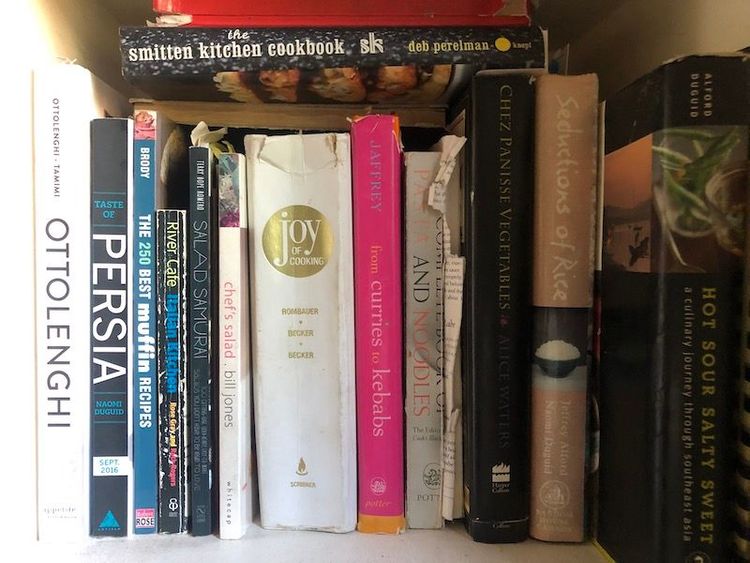
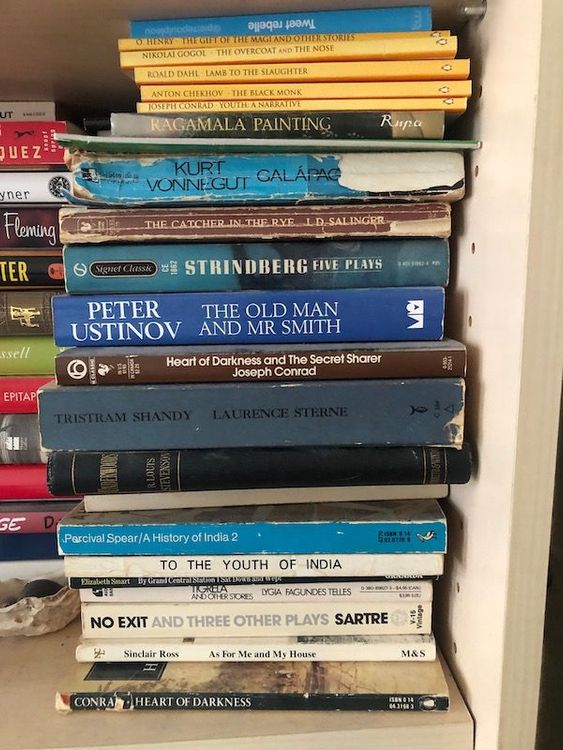
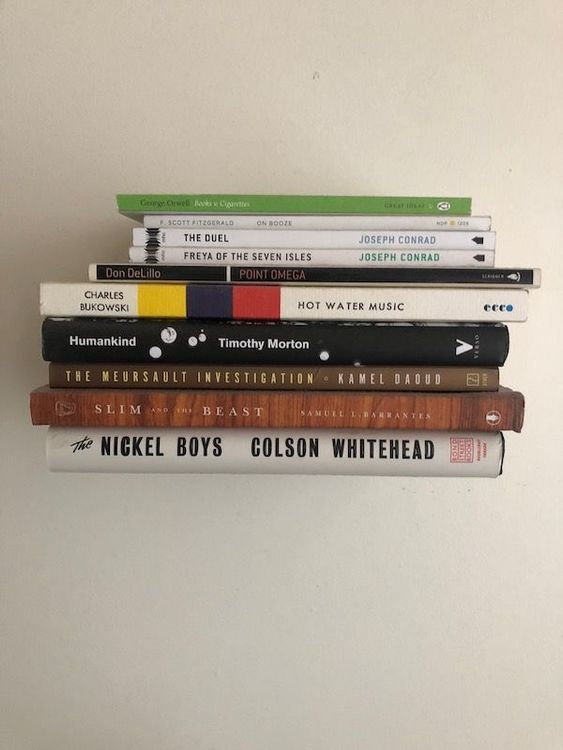
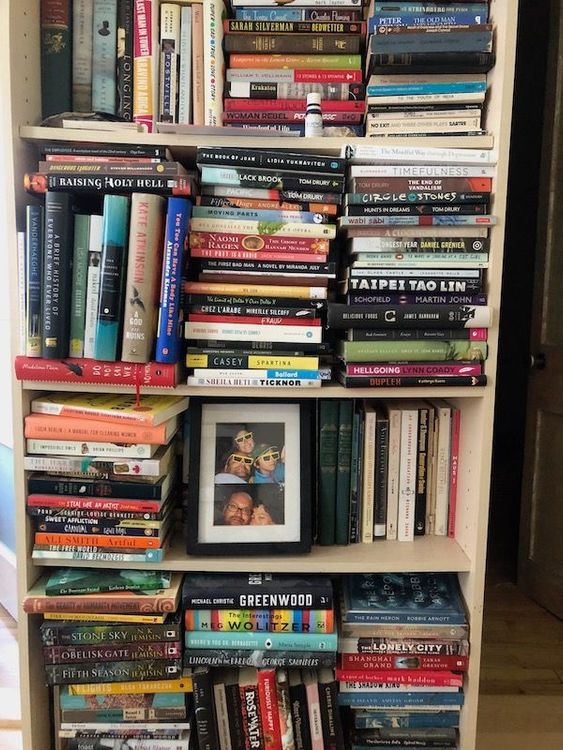
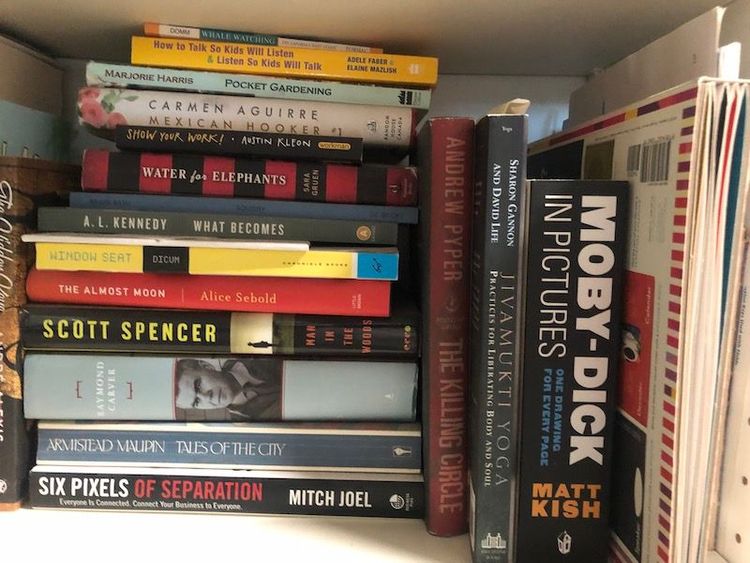
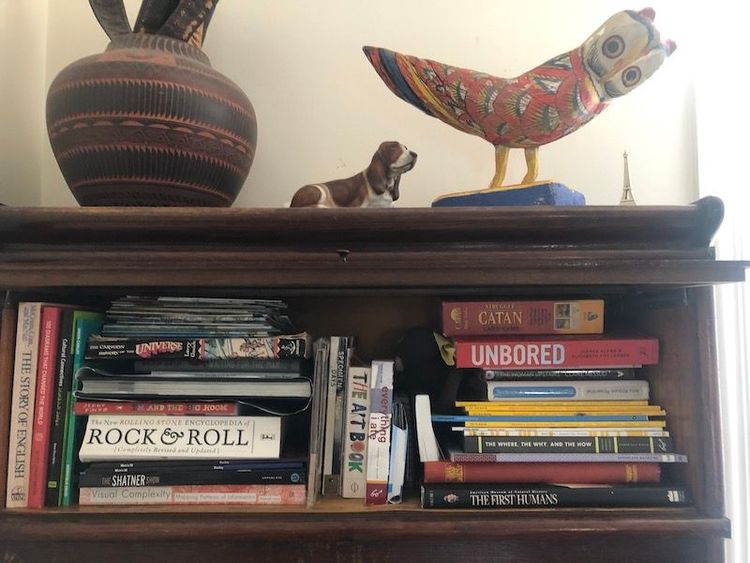
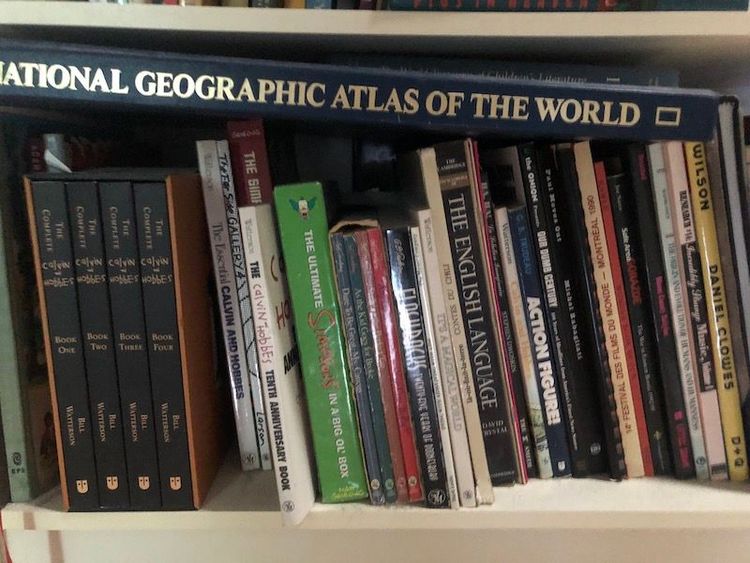
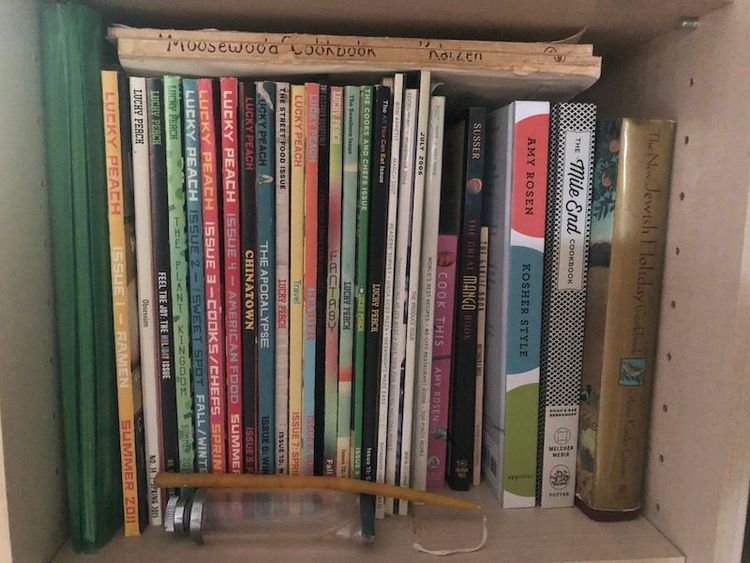
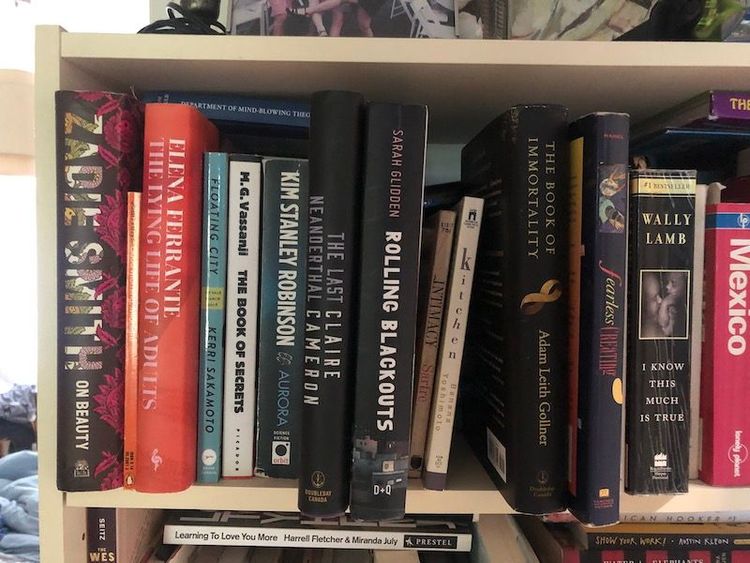
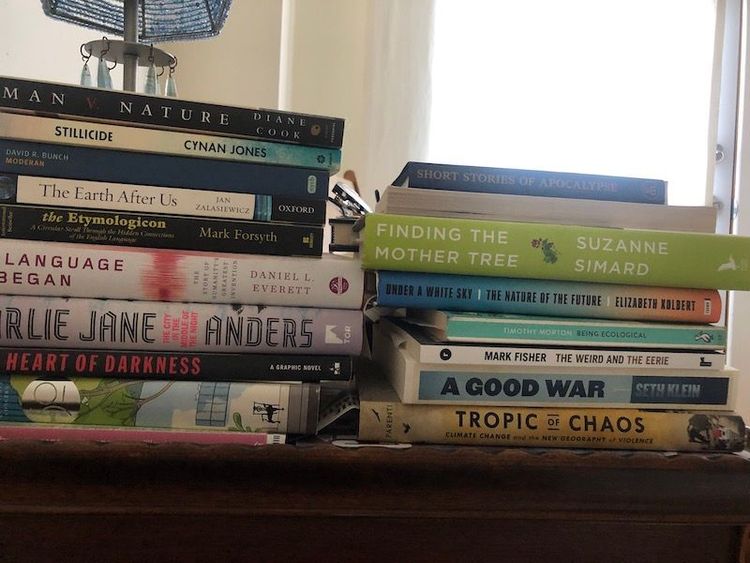
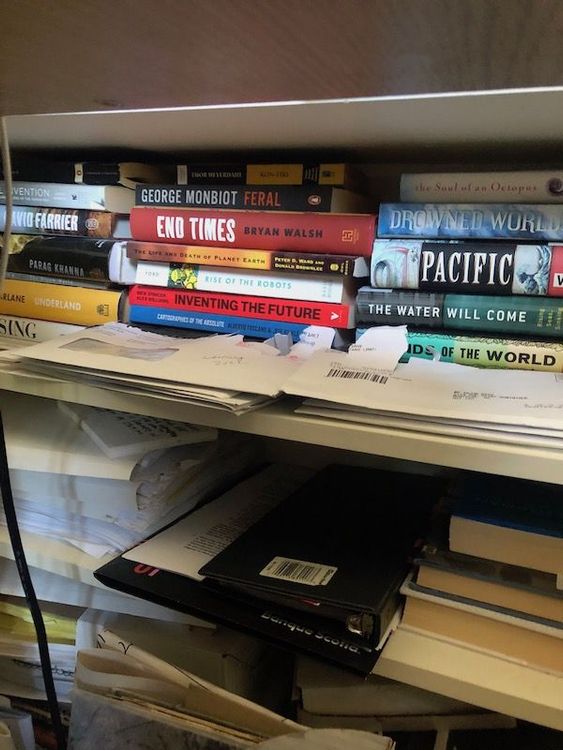
How-to-Cite
MLA
Basu, Arjun. “The Home as Library.” Shelf Portraits, 14 July, 2022, richlerlibrary.ca//shelf-portraits/the-home-as-library. Accessed 28 February, 2026.
APA
Basu, Arjun. (2022, July 14). The Home as Library. Shelf Portraits. https://richlerlibrary.ca//shelf-portraits/the-home-as-library
Chicago
Basu, A. “The Home as Library.” Shelf Portraits, 14 July, 2022, https://richlerlibrary.ca//shelf-portraits/the-home-as-library.
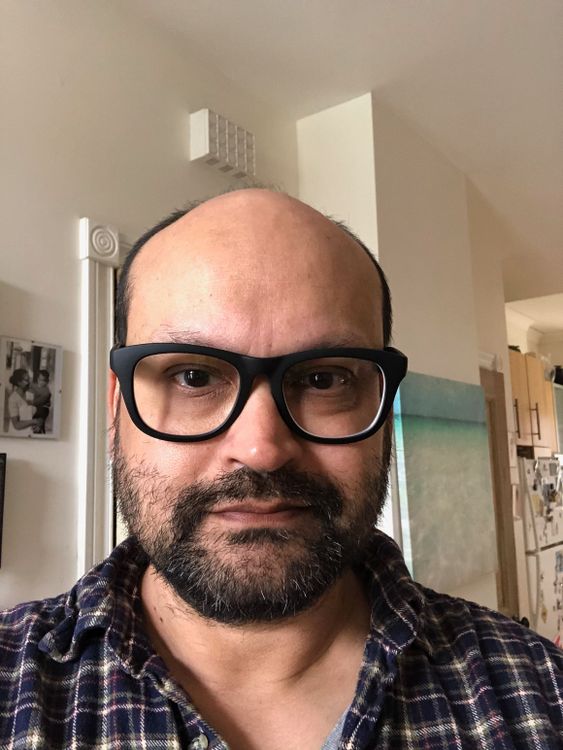
Arjun Basu

Arjun Basu is a Canadian writer born and raised in Montreal, Quebec. His first collection of short stories, Squishy, was published in 2008 and shortlisted for the ReLit Awards in 2009. His novel Waiting for the Man was published in 2014 and longlisted for the Scotiabank Giller Prize. Basu’s next novel, The Reeds, is forthcoming from ECW Press in Spring 2024. You can find Basu online at www.arjunbasu.com, or on his Twitter feed (@arjunbasu) where he became well-known for writing 140-character short stories. But then Twitter became a hellscape and he ceased writing them.